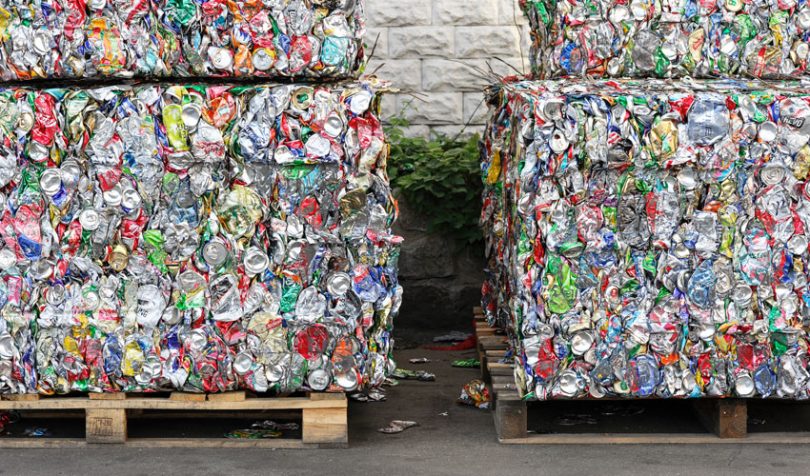Yesterday British digital logistics firm Marine Transport International (MTI) announced the release of its blockchain solution for recycling waste. Built in collaboration with The Recycling Association, Traca is a distributed ledger technology (DLT) based tool for waste supply chain documentation.
Traca has already completed a successful trial, managing seven shipping containers of paper from the UK to Thailand. The British firm, CS Recycling, praised the tool for reducing its usual admin time from hours to minutes.
Waste material is one of the nation’s biggest exports. To remove recyclable waste from the UK, verifiable documents regarding the mass and content of each shipment are needed. Reliance on paper and lengthy authentication can lead to unnecessary costs and delays.
With Traca, recycling companies can share forms and data quickly and securely with producers, regulators, and end destinations. This increases efficiency, saving money and time for the stakeholders across the supply chain.
MTI and The Recycling Association plan add functionality for the various inspection agencies processes and data. Additionally, Traca has been designed to be future proof, meeting regulations set by the UK Government’s Resources and Waste Strategy without adding undue complexity.
“We are an increasingly regulated industry, and data is the only way the wheels turn smoothly,” said Recycling Association chief executive Simon Ellin. “We rely on it to be true and accurate, but when it passes through different parties and becomes third, fourth or fifth hand information, there’s rarely anything to prove its provenance.
“Therefore, for our members to be compliant and sustainable, we need a system that is transparent from cradle (the producer) to grave (the reprocessor). This solution can achieve that,” he continued.
Indeed, Traca uses smart contracts to automate processes, allowing for a transparent audit trail of documentation and associated data. The technology behind Traca is based on Activeledger and is built on MTI’s 2016 solution for VGM (verified gross mass) data.
Traca’s interoperability with current systems, thanks to its ‘adaptor’, is one of its main successes, according to MTI founder and chief executive Jody Cleworth.
“Recycling logistics is a complex sector with a multitude of systems and processes. If we went in asking people to deploy yet more software, yet another login, they wouldn’t be interested,” he explained.
“By developing this adaptor, we’re able to easily connect existing applications with the solution.” The data is loaded from legacy systems and stored in an encrypted form on the distributed ledger. The adaptor provides the provenance of the data – when and from where it came. Then the smart contracts use the data to generate the standard documents needed to import and export container waste in Europe. Cleworth told Ledger Insights that blockchain is perhaps 15% of the solution and that the interesting part is the adaptor and the automation of the documentation and workflow.
“Employees can carry on with their normal processes, and the adaptor automates that data between the various actors, with the smart contracts verifying the information accordingly.” said Cleworth.
Plus, it looks like clients agree. Visy, an international packaging and resource firm, was one of the first to start using Traca. “As an exporter, we spend a huge amount of time creating shipment information and then sharing it with other parts of the chain,” summarized Neil Govan, the company’s European director.
He said: “With The Traca, we’ll be able to upload, verify and share data in minutes, dramatically speeding up both our own internal operations and the process of moving a shipment from one point to another.”
Cleworth was keen to emphasize that “the use cases MTI is targeting are at the peripheries of the supply chain where connectivity does not exist. This allows MTI to create rich data sets surrounding events, where cargo is transferred between the various actors.”
The technology company is already expanding beyond the marine industry and applying adaptors in other sectors. And it’s in discussions with supply chain finance companies and logistics agencies about leveraging the technology.
MTI’s Cleworth spoke at an event last year about network effects in blockchain logistics. Shortly afterwards, the firm signed a Memorandum of Understanding with the UK’s largest port operator.






